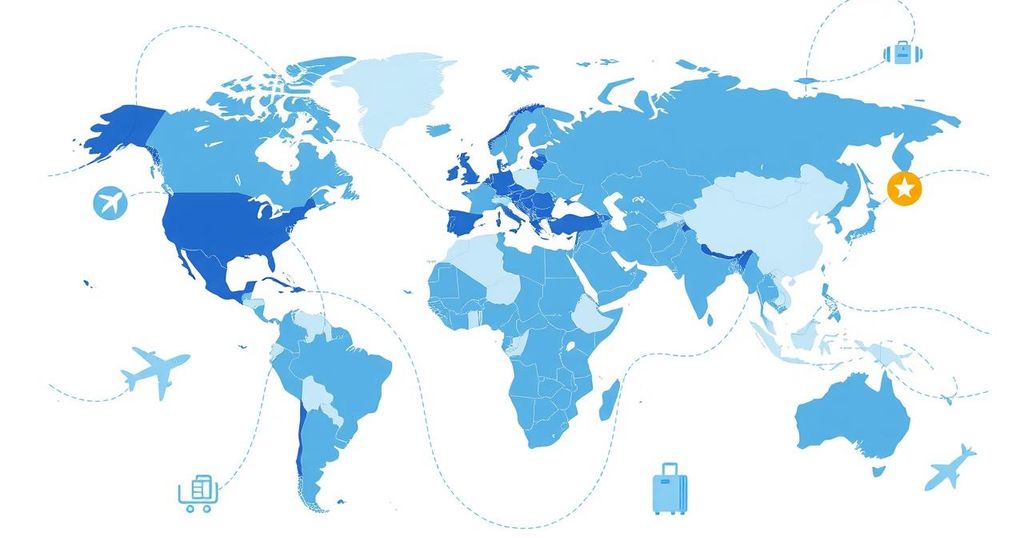The Trump administration is evaluating a new travel ban targeting citizens from 43 countries, with a draft list proposing strict restrictions. It features an absolute ban for 11 countries and tighter controls for 10 others, while a further 22 nations may face additional scrutiny. The final decision on the list, including exemptions for existing visa holders, remains uncertain.
The Trump administration is contemplating a new travel ban affecting citizens from approximately 43 countries, which would be an expansion beyond previous restrictions implemented during his first term. According to confidential sources, a draft list of recommendations includes an absolute prohibition on entry for citizens from 11 countries, including Afghanistan, Iran, and Venezuela, among others.
This draft, developed by the State Department, emphasizes scrutiny on national security and public safety, but adjustments to the list are anticipated as feedback is gathered from various officials. Notably, officials from embassies and security agencies are assessing the accuracy of country evaluations and considering the implications of altering the ban.
The proposal also features an “orange” list of 10 countries, which would face restricted entry. While affluent travelers may still gain access, individuals on immigrant or tourist visas would face additional interview requirements. This list includes countries such as Belarus, Haiti, and Russia.
Mr. Trump’s directives mandate that the State Department pinpoint countries needing rigorous screening due to inadequate vetting and security practices for entry. Although further elaboration is expected, the status of existing visa holders and green card holders under the ban remains uncertain.
Further complicating matters, reports indicate that Afghanistan is likely to be included in this expanded list. The ban presents challenges regarding U.S. relations with countries like Venezuela and Russia, which could have broader implications for foreign policy.
Additionally, a “yellow” list of 22 countries may face significant constraints if they do not rectify perceived security deficiencies within 60 days. Countries on this list include Angola, Cambodia, and Liberia, which are assessed based on their cooperation with U.S. immigration protocols.
During Mr. Trump’s previous term, legal challenges obstructed earlier versions of the travel ban; however, a revised iteration eventually gained Supreme Court approval. In contrast, President Biden recently rescinded these bans, labeling them inconsistent with the country’s traditions of inclusivity and acceptance.
The proposed travel ban, under consideration by the Trump administration, suggests substantial restrictions affecting 43 countries, with an emphasis on national security. While the final list may be subject to revisions, the overwhelming focus remains on vetting and the potential implications for U.S. foreign relations. Issues surrounding existing visa holders and green card holders further complicate the proposal, reflecting ongoing tensions in immigration policy post-Trump’s first term. Ultimately, the evolving situation necessitates close scrutiny from both national security and diplomatic perspectives.
Original Source: newsroom.gy




